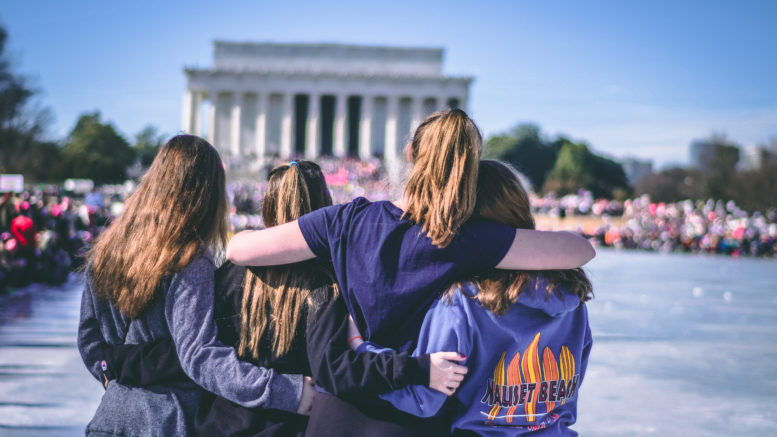In January 2017, the Women’s March on Washington made headlines across the world, with 673 sister marches and almost 5 million participants. The march, which occurred the day after President Donald Trump’s inauguration, was meant to, “[Answer] a call to show up and be counted as those who believe in a world that is equitable, tolerant, just and safe for all” (Source: womensmarch.com). In fact, Theogony covered the event in its January 2017 issue. Four reporters, including myself, shared our perspectives on and experiences at the march. In this article, I mentioned the overwhelming sense of community that I felt; on that frigid winter day, over 500,000 people had become my new friends.
On the anniversary of this historic event, a second march was held in Washington, D.C. This time, the focus was specifically placed on voter registration, using the tagline “Power to the Polls”. The largest of these marches was held in Las Vegas, Nevada, as a response to the mass shooting there on October 1, 2017. There was a significantly lower turnout in D.C. compared to last year, but the sense of community remained. It truly seemed that every protester was there not only for their own interests, but for everyone else as well.
The reason I mention this perpetual sense of community is not to sound like a broken record–it is because I truly believe that the community of protesters is one of the most fascinating and integral parts of the protest. This is not what people come for, but it is most certainly what they stay for. The community involved in protest is unlike anything I’ve ever experienced, and it is completely unique.
As Alexandria residents, T.C. students live right outside of one of the most influential cities in the world, nevermind the nation. I’m sure we all share that common sense of irritation when relatives visit from out of town and beg to see the monuments and museums which we have visited about a million times. However, we cannot take our proximity to the nation’s capital for granted. We have an enormous advantage over those who live in Southern Virginia or Maryland: T.C. is only a ten minute drive from the Lincoln Memorial, where the 2018 Women’s March began. Why, then, do we forsake our ability to protest in exchange for simply complaining about the current state of American politics?
At the risk of sounding anti-technology, social media has given us the ability to broadcast our voices to thousands of people across the world. With this increased platform, however, we must remember that retweeting a few posts about social issues is not enough. Of course, social media campaigns are effective methods of protest, but physical bodies are a bold statement and are equally as necessary to any cause.
Therefore, I urge T.C. students to actively participate in civil government. It is crucial to our futures that we do so– we have all seen that Gandhi quote hanging in our history classrooms at one point or another: “Be the change you wish to see in the world”.
If you feel strongly about a topic, organize a group to attend a protest. If you are eligible, register to vote in the upcoming November midterm elections. The Women’s March is only an example of making your voice heard; if you feel inclined towards any particular cause or project, then you must find a way to include yourself. We, as the future of this nation, must force the government to notice us, no matter our beliefs or partisan alignment. We must make them aware that we are in control of our own futures.

